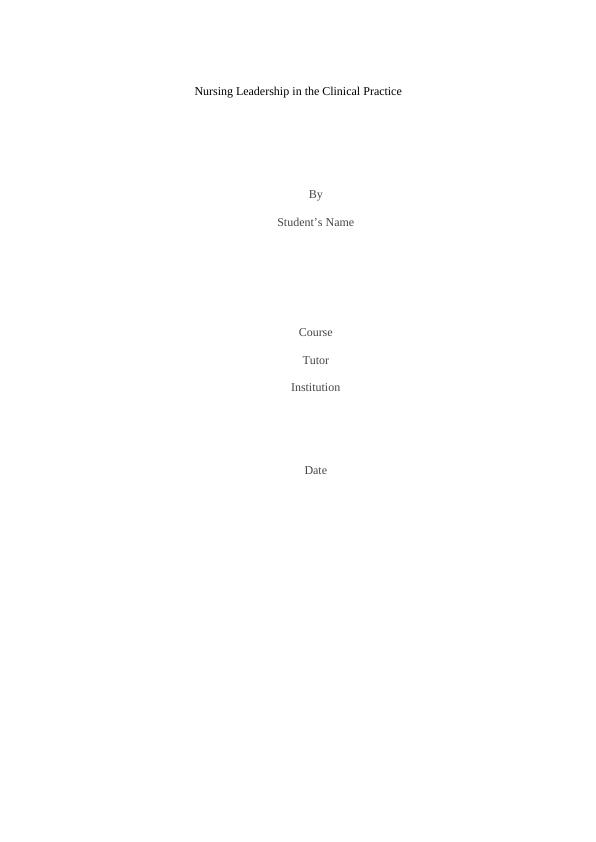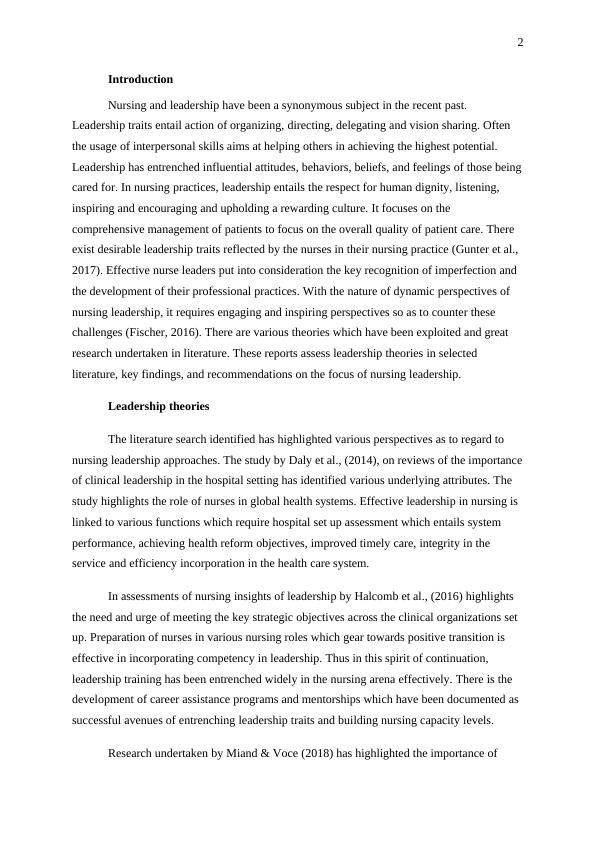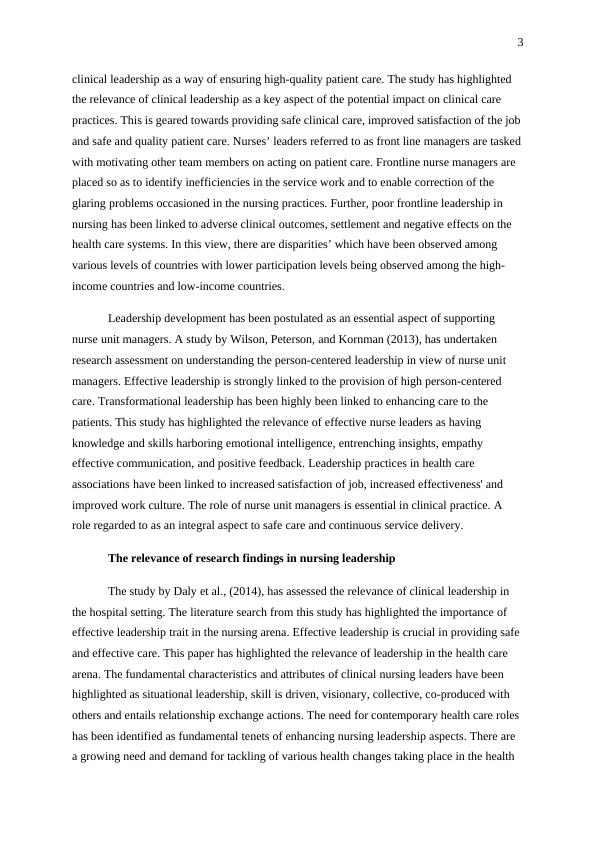Nursing Leadership in the Clinical Practice
8 Pages2393 Words64 Views
Added on 2023-02-01
About This Document
This article discusses the importance of nursing leadership in the clinical practice and its impact on patient care. It explores various leadership theories and their relevance in the nursing field. The study highlights the role of nurses in global health systems and the need for effective leadership in achieving health reform objectives and improving patient outcomes. It also emphasizes the development of leadership skills among nurse unit managers and the importance of person-centered leadership in providing high-quality care. The article concludes with recommendations for strengthening nursing leadership and improving patient outcomes.
Nursing Leadership in the Clinical Practice
Added on 2023-02-01
ShareRelated Documents
End of preview
Want to access all the pages? Upload your documents or become a member.
Legal and Professional Issues in Nursing
|10
|3282
|62
The Assignment on Nursing Leadership in Clinical Practice
|14
|1021
|7
Assignment on Transcript Leadership In Clinical Nursing
|5
|1145
|5
Leadership and Clinical Governance
|10
|2173
|433
Registered Nurse standards of Practice and Mandatory
|8
|2584
|28
Clinical Leadership in Nursing
|13
|3115
|59



